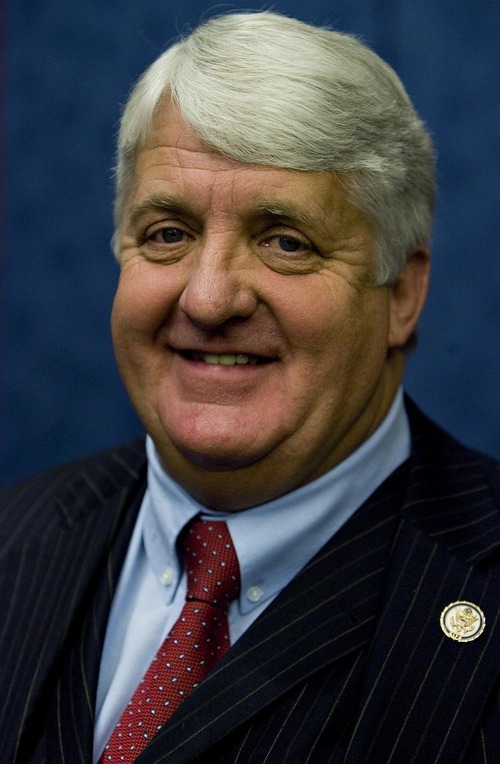This is an archived article that was published on sltrib.com in 2011, and information in the article may be outdated. It is provided only for personal research purposes and may not be reprinted.
Republicans in Utah's congressional delegation introduced legislation Monday that would bar presidents from designating national monuments in the Beehive State.
Aimed at preventing a repeat of former President Bill Clinton's creation of the Grand Staircase-Escalante National Monument in southern Utah — a move that state leaders considered a stealth attack on Utah's coal reserves and local control — the Utah Lands Sovereignty Act would require congressional authorization for creation of new monuments in the state. It essentially voids the president's powers under the 1906 Antiquities Act, at least within Utah.
"The Antiquities Act was abused, pure and simple," said Rep. Rob Bishop, R-Utah, recalling Clinton's creation of the Grand Staircase without state input on 1.9 million acres administered by the Bureau of Land Management.
"The irony," Bishop said in lamenting lost industrial opportunities, "is that [coal] is so close to the ground it's burning now because of lightning strikes."
Utah's legislation, sponsored by Bishop and Rep. Jason Chaffetz in the House and both Utah senators in the Senate, joins a series of others from Western representatives, all trying to exempt their states from presidential proclamation powers.
They would follow Wyoming's example. The Cowboy State successfully forced congressional approval on future designations there after President Franklin Roosevelt established Jackson Hole National Monument, later to become a valley extension of Grand Teton National Park.
To some environmentalists, the Jackson Hole story is an example of why presidents should have the power to make monuments. The lands there are clearly of national interest but would not have been saved from development under local control, said Nada Culver, senior counsel for The Wilderness Society.
Individual states shouldn't get to opt out of a program that has helped define the national character, Culver said.
"This is something that's supposed to bring us together as a nation," she said, but these proposals "are undercutting our national heritage."
Rep. Denny Rehberg, R-Mont., first tried a bill last year and is running it again this year. He was motivated by an Interior Department memo that Bishop obtained and released showing possibilities in Utah, Montana and other states for new monuments. In Utah, the San Rafael Swell and Cedar Mesa made the list. In Montana, administration officials envisioned a prairie monument.
Bishop has since said Interior officials assured him they would not designate new monuments in Utah without public debate. But last week former Interior Secretary Bruce Babbitt, who oversaw Grand Staircase's creation, suggested President Barack Obama should designate a monument to help jump-start idled wilderness debates.



